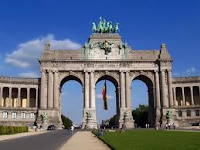As 2011 draws to a close, we can be certain that it will be remembered as the year of the Eurocrisis, with all the global economic uncertainties that implies. However, one of the biggest stories of the year with implications for Europe has been somewhat drowned out by the ongoing financial mess. That is the new role of Turkey internationally.
As Joshua Walker notes in his recent GMF piece, Turkey has been the unambiguous winner of the “Arab Spring” and the “European Fall.” Its role in the Arab Spring in particular has helped strengthen Turkey’s relationship with the US, strained over Israel after the Gaza flotilla incident. Its role as a US ally in the region, seen especially in the cooperation between both countries in pressuring Assad in Syria, has shifted Ankara’s focus toward Washington and away from Brussels. David Ignatius credits in part the developing friendship between Obama and Erdogan for the productive relationship.
With the rapid growth of the Turkish economy over the past several years (though forecasted to slow in 2012) and its newfound political role in the Middle East, the Turks might be forgiven for thinking that now the EU needs Turkey more than the other way round as Prime Minister Erdogan told Spiegel earlier this year. Indeed, Turkish public opinion towards the desirability of joining the EU has fallen precipitously since 2004, according to the 2011 Transatlantic Trends survey (though it has recovered some ground this year): fewer than half (48%) think it would be a good thing. In a poll of European elites conducted this year, the same minority percentage of members of the European Parliament favored Turkish accession.
Turkey still has some ways to go before Washington considers it a truly reliable partner as Hilary Clinton mentioned in an October speech. Obstacles include its weak record on democracy and human rights as well as its strained ties with Israel. But its growing power regionally and economically point to a day when Europe may regret its disregard of its neighbor.











